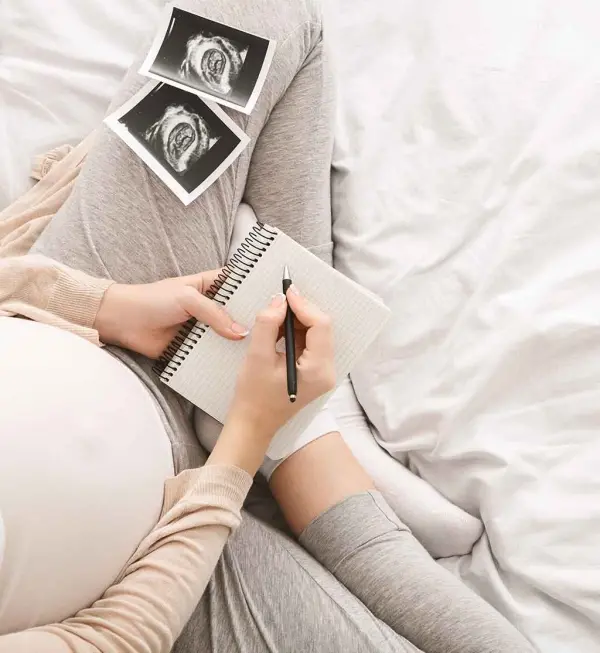While it is not regularly discussed, miscarriage is more common than you think. And it is also highly likely that after an early loss of pregnancy, a woman will go on to have a healthy child. Though getting pregnant after a miscarriage is no different from how you usually conceive, the below tips will help you improve your chances of a healthy pregnancy.
Understand The Odds
Many women who have miscarried once fear that they will lose their later pregnancies too. But a single miscarriage doesn’t mean that a woman cannot carry a pregnancy full-term.
Usually, an early pregnancy loss is caused by conditions like chromosomal abnormalities that don’t depend entirely on a woman’s reproductive health. Only about 1% of women have recurrent or more than two back-to-back miscarriages.
Moreover, nearly 20% of all pregnancies result in a miscarriage. And this includes women who have already experienced a loss too. However, after two losses, the chances of miscarriage increase to 28%. This still leaves a high probability of 72% for women to carry a healthy pregnancy. Understanding these odds can reduce your anxiety and ease your mind while trying to conceive again.
Take Some Time
Miscarriages can be exhausting both physically and mentally. After the loss, you require plenty of rest and self-care. While your body returns to normal in a few months after the loss, you should still take some time before trying to conceive.
Physically
Doctors recommend waiting up to three months or at least one complete menstrual cycle before trying to conceive again. You might start ovulating as early as two weeks after a miscarriage, but your body takes 2-3 months to have regular periods.
Moreover, the hCG hormone can also take one or two months to drop back to normal levels. If you try conceiving before that, you may get a false positive on pregnancy tests. Or worse, the steady drop in hCG can be misdiagnosed as another pregnancy loss.
Some miscarriages need medical or surgical assistance such as dilation and curettage (D&C). If you have undergone a miscarriage treatment, your body takes more time to recover, and you are advised to wait longer before you attempt conceiving again.
Emotionally
No matter when it happens, miscarriages drain the couple emotionally. Intense feelings of grief, anger, and even guilt are common. But there is no “normal” way to react to a loss of an unborn baby. Some miscarriages happen in a matter of a few hours, while others might take days or even weeks. Naturally, these are highly taxing phases, and people may take many months to recover from them.
Even though you want a child, don’t rush into conceiving before you are mentally ready. There is no set time to emotionally recover from miscarriage, as it is a delicate situation. Being free of stress and negative emotions will have a better impact on your future pregnancy.
Detect Underlying Causes
If you have more than one miscarriage, getting a complete preconception check-up helps detect any underlying causes for the loss. Uncontrolled diabetes, thyroid problems, PCOS, autoimmune conditions, genetic abnormalities and other health conditions increase the chances of miscarriage. By detecting them early, you can have a better chance of conceiving and giving birth to a healthy child. If some health conditions prevent you from getting pregnant naturally, you can also opt for In Vitro Fertilization.
Know in detail about Recurrent Miscarriage here.
Adopt a Healthy Lifestyle
Lifestyle changes are important to have a healthy pregnancy. A balanced diet that includes leafy vegetables, pulses, fruits, and iron-rich foods supplies the body with necessary nutrients. Along with it, drink at least eight glasses of water every day.
Smoking, consumption of alcohol, or recreational drugs can impact your conception negatively. Avoid these habits and limit your caffeine intake to less than 200mg per day. Include mild to moderate exercise in your routine. This includes walking, yoga, or jogging. It is best to avoid anything physically too vigorous or strenuous. Extreme exercise can inhibit your ability to release eggs.
Try to keep stress in check by including activities like meditation and journaling. You are also recommended to take folic acid supplements as this prevents certain types of congenital abnormalities in the baby.
Keep Your Health in Check
It is important to keep up with your doctor’s appointments when you are trying to conceive, especially after a miscarriage. Your OB-GYN specialist will guide you to the right steps after your pregnancy loss. They can also advise you if you are looking for any additional treatment for infertility.
If you have any concerns about your miscarriage or further pregnancies, discuss them with your doctor beforehand. Depending on your medical history, they may prescribe some medications that can improve your chances of conception. If you had multiple miscarriages, they might also suggest some tests to understand the causes.
Using Ovulation Predictors
Timing your intercourse close to ovulation gives you a better chance to get pregnant. Using ovulation predictor kits or OPKs, you can predict when you ovulate. These kits work by detecting a rise in the luteinizing hormone in the body, which is an indicator of ovulation. The best time to try for pregnancy is after the rise in the hormone.
However, it is best to use the kit only after you start regularly menstruating post-miscarriage. Even though you ovulate before that, the varying hormone levels in your body cause complications during conception and pregnancy. Equally, getting into a habit of having regular sexual intercourse about 2-3 times a week, gives you equally good exposure to the chance of getting pregnant, while keeping it natural and stress-free.
On the Last Note: Reach Out To Health Care Professionals
Proper medical guidance makes you feel ready for pregnancy after a miscarriage. You can talk to our doctors at ART Fertility Clinics to decide the proper steps you need to take for conception after a pregnancy loss. You can also opt for a treatment for infertility in case of any complications.
With our best-in-class facilities, we have helped hundreds of couples fulfill their dream of parenthood. Visit ART Fertility Clinics to receive the right treatment from our experienced and knowledgeable doctors.



